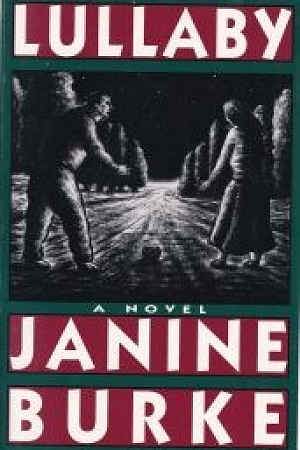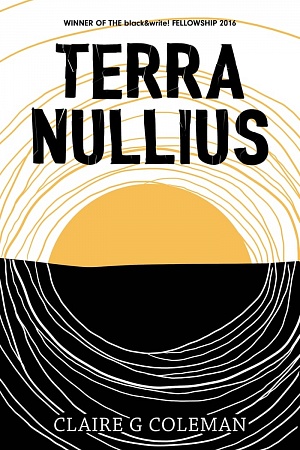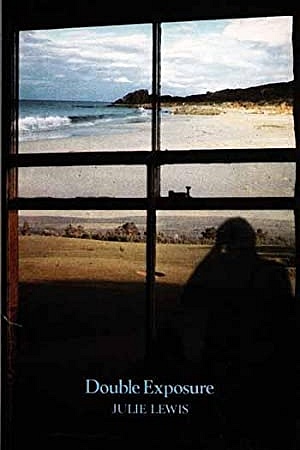Remembering Babylon
Chatto and Windus, $29.95 hb, 0091827825
Remembering Babylon by David Malouf
David Malouf’s Remembering Babylon is his eighth novel, his first since The Great World (1990) which won the Commonwealth Writers’ Prize and the Prix Femina Etranger. It is approximately two-thirds the length of that book but is longer than his first three fictions, Johnno, An Imaginary Life, and Fly Away Peter. Its length is important, as in its 200 pages it packs one of the most powerful punches to be found in any contemporary novel. Astonishingly compact and almost feverishly lucid, Remembering Babylon is a searing and startling literary parable, in my opinion destined to endure as one of Australia’s literary commandments.
What begins as a child’s game and child’s eye view of personal history becomes a metaphor for a civilisation struggling to emerge. Lachlan Beattie plays the heroic child-soldier who encounters the tattered figure of Gemmy Fairley – half-man, half-beast, half-black, and half-white – in the outback of mid-nineteenth century Queensland. He leads this strange figure back to the crowd of settlers who marvel at the nature of his appearance. In the schoolroom Gemmy is interrogated by the minister, Mr Frazer, while an ill-at-ease, ungainly, nineteen-year-old schoolmaster takes notes. Seven closely-written pages amount to Gemmy Fairley’s life, which 180 typescript pages later has been refracted through a number of different eyes.
It transpires that, as a child on his passage from England, Fairley was washed overboard on the coast of Australia and taken in by blacks. He quickly learnt to adapt to his new way of life and spent several years in their midst, and indeed he had done this so successfully that on entering the white settlement his new compatriots do not know what to make of him and cannot work out whether Gemmy is making fun of them or is just slow-witted. He is befriended by the family of the children who found him and forges a strange and silent friendship with Lachlan and Janet. He shows them skills he previously learnt, such as how to track, and instinctively these children pick up on Gemmy’s adaptability and intelligence, qualities to which the adults are slow to react.
The settlers’ wariness and dismal view of Gemmy, fostered by their poor relations with the blacks, materialises when after almost a year of tranquillity Gemmy is seen with some blacks and rumours spread through the settlement with the speed of a bush fire. Attracted by the brief heat (and indignity) of notoriety, Andy McKillop breathlessly tells the Mclvor’s neighbour that Gemmy has been conspiring with the blacks who actually handed a stone over to the dangerous trouble-maker. Again the adults in the settlement act towards Gemmy with the habitual passion of inviolable hatred while the children’s innocence allows them to maintain their friendship. After a midnight disappearance Gemmy is ostracised and made to live elsewhere. George Abbot, the schoolmaster, having learnt humility from the minister and subconsciously seeing Gemmy’s victimisation as similar to his own plight, vows to see him safely home. Gemmy disappears and fifty years later an event that has hung heavily in the hearts of the two children is exposed in all its squalid tragedy.
These bare bones cannot begin to suggest the brilliantly subtle qualities of Remembering Babylon. Throughout Gemmy is, figuratively and literally, at sea – from being cast overboard to recognising things from his past life, when ‘occasionally some object would come floating back and bump against him’. The aquatic metaphors, made stronger by the sense of impossible escape from the harsh island terrain, subtly dovetail with the book’s strongest message; erode the skin and see the man beneath, life itself is not a face-value judgement. When he is spotted with the blacks after a year with the whites (he is ‘run aground’), the white onlooker seems to Gemmy exactly as Gemmy was to the children. This mirroring of behaviour from seemingly diametric opposites suggests surface inaccuracies. This is compounded by the apparent ignorance of the children which actually emerges as empathetic understanding of the situation.
Malouf’s writing conveys the brutal power of the geography and countryside, and how it can be both friend and foe, blazing sun and lush vegetation. It is as if the terrain is also a character, sometimes white, sometimes black, protecting and exposing the foolish foibles and misadventures of those on the land. There are several superb cameos of the supercilious schoolmaster, contented Governor and understanding clergyman. Moreover, in a climate where ‘it was mere naked endurance that best revealed the qualities of man’, there is a touching and finely handled evocation of female longing and loneliness, the moving bond of individual woes of Gemmy and Ellen McIvor as her own isolation propels her towards him.
When Gemmy Fairley’s life was being recorded by George Abbot in that hellishly hot schoolroom, thousands of miles away Edgar Allan Poe wrote, ‘It is not beauty if it requires to be demonstrated as such’. Let Remembering Babylon, by the power of its prose and humanity, demonstrate to you its unforgettable and deeply significant message.
Remembering Babylon is an astonishing, horrifying, and yet finally uplifting masterpiece. It is composed with a poetical elliptical bravura resonant with almost biblically prophetic tones which perfectly match the period in which it is set. It tells us about our past and about ourselves. I pray it will have legions of readers of all colours, creeds and ages.










Leave a comment
If you are an ABR subscriber, you will need to sign in to post a comment.
If you have forgotten your sign in details, or if you receive an error message when trying to submit your comment, please email your comment (and the name of the article to which it relates) to ABR Comments. We will review your comment and, subject to approval, we will post it under your name.
Please note that all comments must be approved by ABR and comply with our Terms & Conditions.